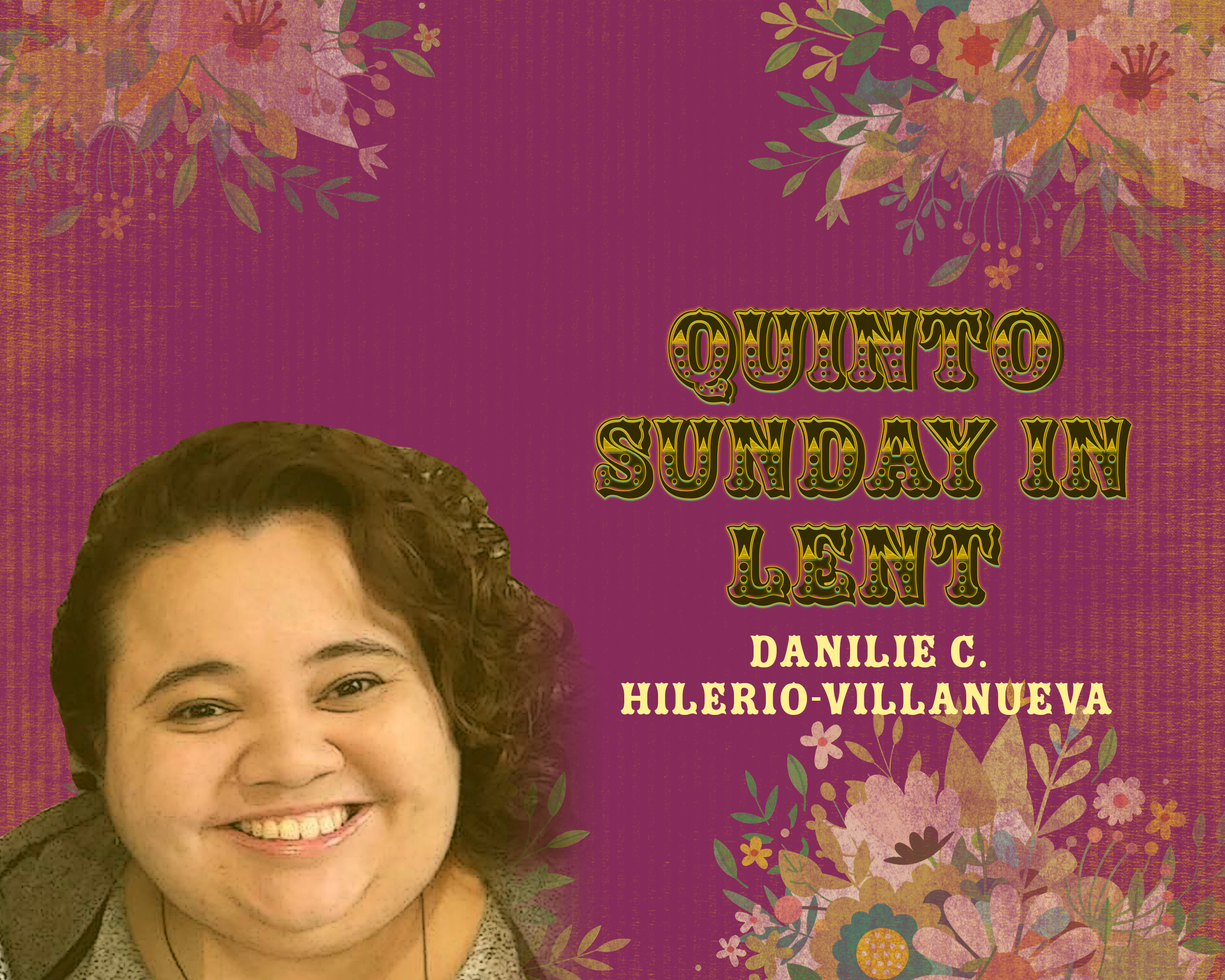Scripture: Isaiah 43:16-21, Psalm 126, Philippians 3:4b-14 and John 12:1-8
ACT JESUS IS ANOINTED IN BETHANY
Commentary on the Act of Mary
Scene I
Everyone is gathered at the table.
LAZARUS and OTHERS are sitting around JESUS.
MARTA serves dinner.
The Gospel transforms the everyday into transcendental, into that which responds to the enigma of our spiritual journey, to the unknowns of our soul, and to the search for the sacred. John 12:1-8 describes the scene. He tells us about those who serve and those who sit at the table. These characters respond to the roles of their time and context. Marta served and Lazarus was one of those seated. A picturesque image of a home with an important visitor until something unexpected arises inserted into the speech through the Greek particle οὖν implying a change in the course of the scene.
Scene II
MARÍA bursts into dinner while they eat
and she proceeds to anoint the feet of JESUS
The unexpected, unusual or radical takes shape in the person of Maria. Mary is not the main or traditional character, but rather she represents an alternate model of interpreting the stories, visits, gestures and work of Jesus. María bursts onto the scene, hurriedly or spaced out, taking in her hands a specific amount of aroma and putting on pause Lazarus’ conversations, Martha’s service tasks, and perhaps even the digestion of the diners. María stops the routine, took a lot to appreciate the transcendental in everyday life. The one who accompanies them is the Christ and time rushes him towards the salvific mission. Mary invites us to stop and reconcile the meaning that God is with us. Moving away from the practical, conventional and even consistent, Mary simply takes what she possessed of greatest value, a pound of pure nard perfume, anoints the feet of the One who was born in a manger and then dries with her hair. Bursting onto the scene, Mary leaves EVERYTHING at the feet of Jesus, and walks before the worldview of the Kingdom of God, stating that finding the Kingdom is ADDED to servants.
Scene III
JUDAS, ISCARIOTE SON OF SIMON
argues about MARY
Maria’s acts are far from the resolutions and reasons for action in work teams, committees and commissions. It was not a proposed motion, nor did it receive the necessary votes. It did not represent the decision of the congregation, nor of its disciples. It could be said that it was out of order, and as such it was pointed out by the treasurer, by the person designated to keep the bag. Her act was presented to the full forum and quantified. She wondered about the best use of resources. The option of providing a proposal that best favored those in need was recommended, in order to make an equitable division of the good investestment. The narrator allows us to have an introspective eye on the ulterior motives that he catalogs Maria’s decision as non-rational.
Scene IV
JESUS makes an alternate motion
in favor of MARY
We find ourselves at the feet of Jesus through the character of Mary. Through her intuition we can reflect on the person of Jesus, imagine his gestures and reflections, and reach another type of knowledge about the Master. This non-rational knowledge quiets the soul, calms the senses and allows us to see God’s purpose. The purpose of God prepares us for the transcendental through the everyday, it allows us to see God while we:
- we rinse the feet,
- we break bread,
- we say goodbye to someone,
- we are afflicted in spirit,
- unknown ulterior motives,
- we cry before the pain that we cannot correct.
Here coexists the harmony between God and our neighbor, when we are able to BE before God, divest ourselves of what we do and produce to simply be at the feet of Jesus. Jesus comes out to meet us and asks us to sit at his feet, just that.
Annotations
As we scrutinize the Gospel in John 12: 1-8, we find an alternative model to the traditional one, Mary who arranged everything that she was and had before Jesus. Maria’s record was told to him in addition.
As we read in Philippians 3:4b-14 we find Paul, Pharisee of the Law, the traditional model. In both Mary and Paul cohabits a common Spirit that allows them to estimate all that they are and has in the light of being at the feet of Jesus. Whether rational or irrational, logical or incoherent, our being finds an answer in the person of Jesus, his birth, testimony, death and resurrection of him.
“All things as loss for the excellency of knowing Christ Jesus my Lord, for whose sake I have lost everything, and count it as rubbish, that I might gain Christ, and be found in him, not having my own righteousness, which is through the law, but that which is through faith in Christ, the righteousness which is from God through faith” Philippians 3:8-9 (KJV)
As we approach the Holy Week, the value of everyday life is transcendental. As we overcome the uncertainty of our days God calls our SELF to his feet, so that later we can be in family, church, neighborhood and community-based organizations, in activism and prayer, proclaiming justice, compassion and salvation.
Prayer
God of love, we need help to be. Allow our body, soul and mind to be in communion with you. It allows us to be in communion with our neighbor and with those who differ in thought, customs, traditions, forms of expression, modalities of work; In short, allow us to belong to one body, in one faith, in one love, in one baptism by your grace alone.

The Rev. Danilie C. Hilerio-Villanueva is a graduate of the Evangelical Seminary of Puerto Rico. An ordained minister of the Presbyterian Church USA, she collaborates as a pastor of the Presbyterian Church in Rincón, Puerto Rico and through the Borinquén Presbyterian Synod, the Presbytery of the Northwest (Puerto Rico) and the General Assembly. She enjoys spending time with her husband and family.



Unbound Social